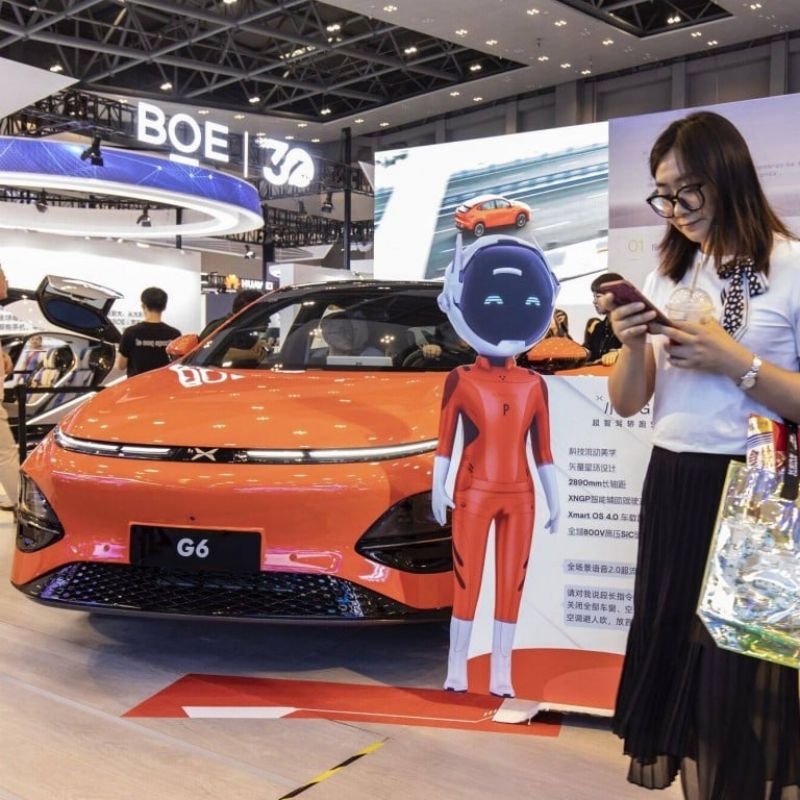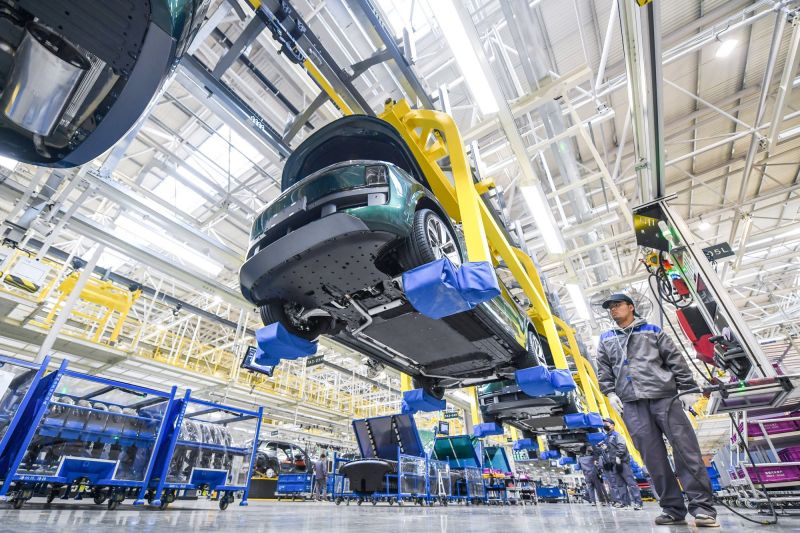· EV makers offered an average 6 per cent discount in July, a smaller cut than during the price war earlier in the year, researcher says
· ‘Low profit margins will make it difficult for most Chinese EV start-ups to stem losses and earn money,’ an analyst says
Amid frantic competition, Chinese electric vehicle (EV) makers have launched another round of price cuts to lure buyers as they chase lofty sales goals for 2023. However, the cuts could be the last for a while as sales are already strong and margins are thin, according to analysts.
According to AceCamp Research, Chinese EV makers offered an average 6 per cent discount in July.
However, the research firm ruled out further significant price reductions because sales figures are already buoyant. The July price cuts turned out to be smaller than the discounts offered in the first quarter of the year, as the low-price strategy has already spurred deliveries amid an accelerated pace of electrification on mainland roads, according to analysts and dealers.
Sales of pure electric and plug-in hybrid EVs rose 30.7 per cent year on year in July to 737,000, according to the China Passenger Car Association (CPCA). Top companies like BYD, Nio and Li Auto rewrote their monthly sales records in July amid an EV buying spree
“Some electric car makers are resorting to the low price strategy to bolster sales because a discount makes their products attractive to budget-conscious consumers,” said Zhao Zhen, a sales director with Shanghai-based dealer Wan Zhuo Auto.
At the same time, further cuts seem unnecessary because people are already buying. “Customers do not hesitate to make their purchase decisions as long as they feel the discounts are within their expectations,” Zhao said.
A fierce price war among EV builders and manufacturers of petrol cars early this year failed to propel sales, as customers sat out the bargain bonanza in the hope that even steeper discounts were on the way, even though some auto brands slashed prices by up to 40 per cent.
Zhao estimated that EV makers offered an average discount between 10 and 15 per cent to drive up deliveries between January and April.
Car buyers decided to enter the market in mid-May as they felt the price war was over, Citic Securities said at the time.
“Low profit margins [after price cuts] will make it difficult for most Chinese EV start-ups to stem losses and earn money,” said David Zhang, a visiting professor at Huanghe Science and Technology College. “A new round of a bruising price war is unlikely to resurface this year.”
In mid-August, Tesla cut prices of its Model Y vehicles, made at its Shanghai Gigafactory, by 4 per cent, its first reduction in seven months, as the US company fights to retain its leading market share in the world’s largest EV market.
On August 24, Geely Automobile Holdings, China’s largest privately owned carmaker, said in its first-half earnings report that it expected to deliver 140,000 units of the Zeekr premium electric-car brand this year, almost doubling last year’s total of 71,941, via a low price strategy, two weeks after the company offered a 10 per cent discount on the Zeekr 001 sedan.
On September 4, Volkswagen’s venture with Changchun-based FAW Group, slashed the price of its entry-level ID.4 Crozz by 25 per cent to 145,900 yuan (US$19,871) from 193,900 yuan previously
The move followed VW’s success in July, when a 16 per cent price cut on its ID.3 all-electric hatchback – made by SAIC-VW, the German company’s other Chinese venture, with Shanghai-based carmaker SAIC Motor – drove a 305 per cent increase in sales to 7,378 units, compared with a month earlier.
“We expect the significant promotion for the ID.4 Crozz to bolster short-term sales volume from September,” Kelvin Lau, an analyst with Daiwa Capital Markets said in a research note earlier this month. “However, we are cautious on the potential impact of a likely intensified price war in the domestic new-energy-vehicle market, considering the peak season is coming, as well as likely margin pressure for upstream auto parts suppliers – a negative on market sentiment for auto-related names.”
Chinese EV manufacturers delivered a total 4.28 million units in the first seven months of 2023, up 41.2 per cent from the same period a year ago, according to the CPCA.
EV sales in China may rise 55 per cent this year to 8.8 million units, UBS analyst Paul Gong forecast in April. From August to December, EV makers will have to deliver more than 4.5 million units, or 70 per cent more vehicles, to meet the sales target.
Post time: Sep-12-2023






